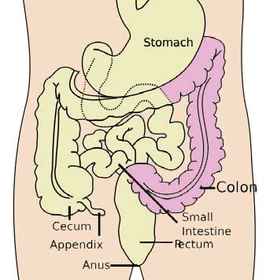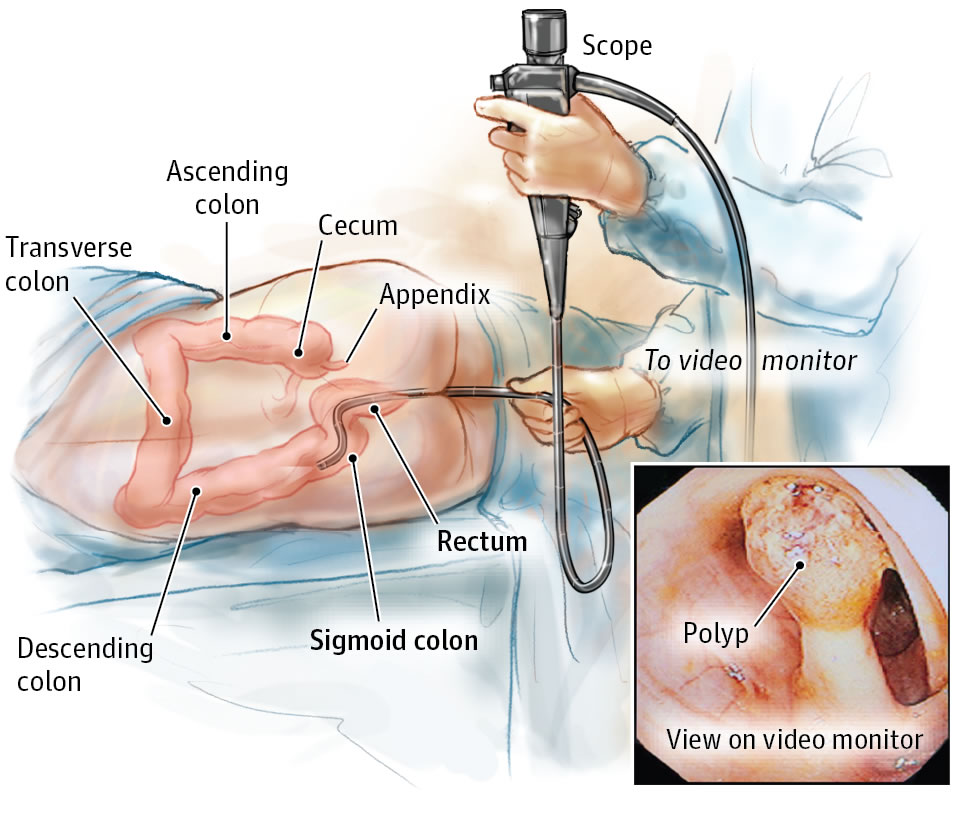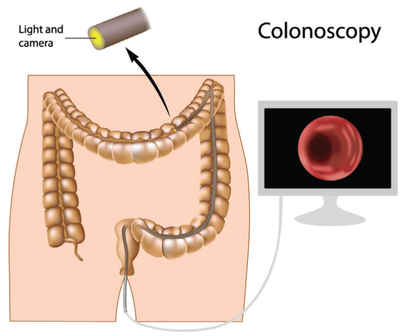NUHS Institutions will NEVER ask you to transfer money or disclose bank details over a call.
If in doubt, call the 24/7 ScamShield helpline at 1799, or visit the ScamShield website at www.scamshield.gov.sg.
Make an appointment or seek a second opinion here.
Colorectal cancer is the cancer of the colon (large intestine) and the rectum (the passageway connecting the colon to the anus). Colorectal cancer is Singapore's top killer, affecting more than 1,865 cases each year. Colorectal cancer usually starts as a non-cancerous polyp (a growth of tissue) on the inner lining of the colon or rectum which may develop into cancer over time. This is why screening using colonoscopy is important as the polyp can be detected and removed before it becomes cancerous. Screening for colorectal cancer saves lives.

*People who think they may be at risk should discuss this with their doctor.
Colorectal cancer is often a silent disease, developing with no symptoms at all. When symptoms do occur they may include the following:
*A doctor should be consulted if the symptoms above occur.

Faecal Immunochemical Test (FIT)
The FIT test checks for hidden blood in the stool, which can be an early sign of colorectal cancer. The test comes in a simple kit and can easily be carried out in the comfort of your own home. The Singapore Cancer Society (SCS) distributes free FIT kits to eligible Singaporeans and Permanent Residents. The FIT test needs to be done annually to be an effective screening test.

Colonoscopy
A colonoscopy is a procedure that enables your doctor to examine the lining of your colon for abnormal growths. A soft and flexible tube, about the thickness of a finger, is gently inserted into the anus and advanced in. The tube has a built-in camera that allows your doctor to see your colon. The procedure usually takes about 15 to 30 minutes to complete.
Regular screening can often detect colorectal cancer early, when it is most likely to be curable. In many cases, screening can also prevent colorectal cancer as some polyps or growths can be removed before they have the chance to develop into cancer. There are several tests that examine the colon and rectum and are used to find and diagnose colorectal cancer.
Physical Exam
Your doctor checks general signs of health, including checking for signs of disease, such as lumps or anything else that seems unusual.
Digital Rectal Exam
The doctor inserts a lubricated gloved finger into the rectum to feel for lumps or anything that seems unusual. However this detects cancer only in the last 5 to 8 centimeters of the rectum.
Barium Enema
An x-ray test using barium sulfate (a chalky liquid) to outline the inner part of the colon and rectum to look for abnormal areas on x-rays. If suspicious areas are seen, a sigmoidoscopy or colonoscopy will be needed to explore further.
Flexible Sigmoidoscopy
This procedure examines the rectum and the sigmoid (lower) colon for polyps, abnormal areas or cancer. A flexible, thin, tube-like instrument with a light and a lens for viewing is inserted through the rectum into the sigmoid colon.
Colonoscopy
This procedure allows examination of the whole colon for cancer. A colonoscope (a thin, tube-like instrument) is inserted through the rectum into the colon.

Depending on the stage of the colorectal cancer, there are various treatment options available. The main types of treatment that can be used for colorectal cancer include the following.
Surgery
Surgery is the most common kind of treatment for all stages of colorectal cancer. There are various forms of surgery to remove the cancer including:
Radiation Therapy
Radiation therapy uses high-energy x-rays or other types of radiation to kill cancer cells or keep them from growing. Radiation therapy is usually used after surgical removal of the cancer to kill any residual cancer cells around the original tumour site. It can also be used together with chemotherapy to shrink a large colorectal cancer before surgery.
Chemotherapy, Targeted Therapy and Immunotherapy
Chemotherapy is the use of drugs to stop the growth of cancer. It can be administered by injecting drugs into the vein or taken by mouth as pills. Depending on the stage of the cancer, chemotherapy may be required after surgery to prevent recurrence and improve a person’s chance of survival. Chemotherapy is commonly used for patients with advanced colorectal cancer which cannot be cured by surgery or have spread to other parts of the body. The many different treatment options available have enabled advanced colorectal cancer patients to live longer despite having an incurable cancer and they are managed with having a chronic condition. Treatment for advanced colorectal cancer is now personalized whereby genetic information from the cancer is used to guide the selection of medications such as targeted therapy and immunotherapy. Targeted therapy uses drugs to help stop cancer from growing and spreading. They work by targeting specific genes or proteins found in cancer cells or in cells related to cancer growth, like blood vessel cells. Immunotherapy is the newest form of cancer treatment. It is a type of cancer treatment designed to allow the immune system itself to destroy the cancer cell.

Colorectal Cancer Care Team

Colorectal Cancer Online Resource Library

Patient Support Groups

Colorectal Cancer Clinical Trials

Warna 94.2FM Radio Show with Dr Chee Cheng Ean

Public Education Materials

Colorectal Cancer Resesarch